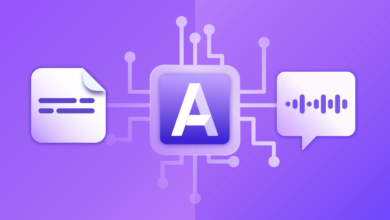How to Keep Your Digital Life Secure: Simple Steps to Stay Safe Online

Keeping your data “digitally secure” is more important than ever in today’s digital world.With so many online threats, it’s easy to feel overwhelmed. But don’t worry! There are simple steps anyone can take to protect their personal information and stay safe on the internet.
Being “digital secure” means taking control of your online safety. It’s not just about using strong passwords; it also involves being aware of risks, updating your software, and knowing how to spot fake websites and emails. Let’s walk through easy ways you can secure your digital world and enjoy the internet without fear.
Table of Contents
What Does ‘Digital Secure’ Mean and Why It’s Important for You

In today’s world, staying digital secure is essential. But what does it really mean? Simply put, being digital secure means protecting your information, devices, and personal details from online threats. It’s about making sure your data stays safe when you’re browsing the internet, shopping online, or using apps.
Many people don’t realize that even simple activities online can put their information at risk. Whether it’s through weak passwords or falling for scams, it’s easy for hackers to access personal data. But don’t worry—there are easy ways to stay safe online. By understanding how to protect yourself, you can make your digital life more secure and less stressful.
How to Make Your Online Accounts Digital Secure with Strong Passwords
One of the first steps to being digital secure is using strong passwords for your accounts. A strong password is one that’s hard to guess. Avoid using simple words like your name, birthday, or “password123″—these are easy for hackers to figure out.
Instead, create a mix of letters, numbers, and symbols. The longer the password, the better. A good tip is to use a passphrase, which is a sentence that only you can remember. For example, “BlueSkies2025!” is much safer than using a single word. You can also use a password manager to keep track of all your passwords safely.
Digital Secure Browsing: How to Stay Safe While Surfing the Web
When you’re online, it’s important to make sure that your browsing is digital secure. One of the easiest ways to stay safe is by checking if the website is secure. Look for “https://” in the web address—this means the website uses encryption to protect your information.
Avoid visiting shady websites or clicking on links from unknown sources. Scammers often use these tricks to steal your data. Always make sure the website is trustworthy before entering personal information, such as credit card details. If you’re unsure, do a quick search to see if the site is legit.
Using a VPN for Extra Protection
A VPN (Virtual Private Network) is a great tool for keeping your online activities digital secure. It helps protect your privacy by hiding your IP address and encrypting your internet connection. Using a VPN when connecting to public Wi-Fi can keep hackers from stealing your information.
How Regular Software Updates Help Keep Your Devices Digital Secure
Regular software updates are one of the easiest and most important ways to keep your devices digital secure. Software developers often release updates to fix bugs, improve features, and most importantly, patch security holes. If you ignore these updates, your device becomes more vulnerable to cyber-attacks.
It might seem like a hassle, but updating your device is quick and important. If your phone, computer, or app asks for an update, make sure to install it as soon as possible. Not updating can leave your personal information exposed to hackers looking for weak spots in older software.
Automatic Updates: Set It and Forget It
Most devices offer the option to enable automatic updates. This feature ensures that your devices stay digital secure without you having to remember to do it manually. It’s a great way to stay safe while avoiding the stress of missing important security fixes.
Avoid These Common Online Scams to Stay Digital Secure
Online scams are everywhere, and they can trick even the most careful people. From fake emails asking for your password to suspicious websites that steal your credit card information, it’s important to be aware of these threats to stay digital secure.
One common scam is phishing, where scammers pretend to be a trusted company and ask you for sensitive information. Always double-check the email sender before clicking any links or attachments. Never give out personal details like your bank account number unless you’re sure the request is legitimate.
Recognizing Fake Websites
Fake websites are designed to look like real ones, but their purpose is to steal your information. Before entering your credit card details, check if the website has “https://” in the URL and a small padlock symbol next to the address bar. These signs indicate that the site is secure.
Digital Secure Mobile Devices: Tips to Protect Your Phone or Tablet

Our mobile devices are filled with personal information, from photos to passwords. That’s why keeping your phone or tablet digital secure is so important. Start by setting a strong password, PIN, or fingerprint to lock your device. This ensures that only you can access your data.
You should also be careful about the apps you download. Only install apps from trusted sources, like the Google Play Store or Apple’s App Store. Avoid downloading apps from random websites, as they might contain malware designed to steal your information.
Use Remote Wipe Features for Extra Protection
Many mobile devices offer a “remote wipe” feature, which allows you to erase all your data if your device is lost or stolen. Enabling this feature can give you peace of mind, knowing that your information is safe even if you lose your phone.
Why Using Two-Factor Authentication Makes You Digital Secure
Two-factor authentication (2FA) is an excellent way to add extra layers of protection to your online accounts. With 2FA, even if someone gets hold of your password, they can’t access your account without a second form of identification, such as a code sent to your phone.
Most social media sites, email services, and banking apps offer 2FA as an option. It’s a quick and easy step to take to make your accounts more digital secure. Enabling 2FA is one of the best ways to protect yourself from hacking attempts.
Setting Up Two-Factor Authentication
Setting up 2FA is easy.The majority of platforms will walk you through the steps. Once enabled, you’ll receive a code via text or an app each time you log in. This simple step helps keep your online accounts digital secure.
Simple Tips to Stay Digital Secure Every Day

Staying digital secure doesn’t have to be difficult! There are a few easy habits you can adopt to stay safe online every day. One of the best ways to protect your data is by being careful where you click. Avoid clicking on strange links or opening unknown attachments in emails. You can also enable automatic updates on your devices, so you never miss important security patches.
Another simple tip is to avoid using public Wi-Fi for sensitive activities like online shopping or banking. Public networks can be unsafe, and using a VPN can help protect your information when connecting to them. By following these simple steps, you’ll be one step closer to staying safe online!
Conclusion
In today’s digital world, staying digital secure is something everyone should care about. By using strong passwords, keeping your software updated, and being careful online, you can protect your personal information. It’s not hard to stay safe, but it requires a little attention and smart habits. Remember, a few simple steps can make a big difference in keeping your online life safe and secure.
Taking the time to learn about online safety is important for everyone, no matter how old you are. The more you understand how to protect yourself, the easier it will be to stay digital secure. Whether it’s using two-factor authentication or knowing how to spot scams, small actions add up to big protection. Keep yourself and your data safe by staying aware and taking action today!
FAQs
Q: What does it mean to be “digital secure”?
A: Being digital secure means protecting your personal information online from threats like hackers and scams. It’s about staying safe when using the internet.
Q: How can I make my passwords stronger?
A: To make your passwords stronger, use a mix of letters, numbers, and symbols. Avoid simple words and make your password longer for extra safety.
Q: Is it important to update my software?
A: Yes, updating your software is important because it helps fix security problems and keeps your devices safe from hackers.
Q:How can I avoid phishing and what is it?
A: Phishing is when scammers try to trick you into giving them personal information. To avoid it, always double-check emails or messages and never share passwords or personal details unless you’re sure the request is real.
Q: How does two-factor authentication keep me safe?
A: Two-factor authentication adds an extra layer of protection to your accounts. Even if someone gets your password, they can’t log in without a second code sent to your phone or email.




